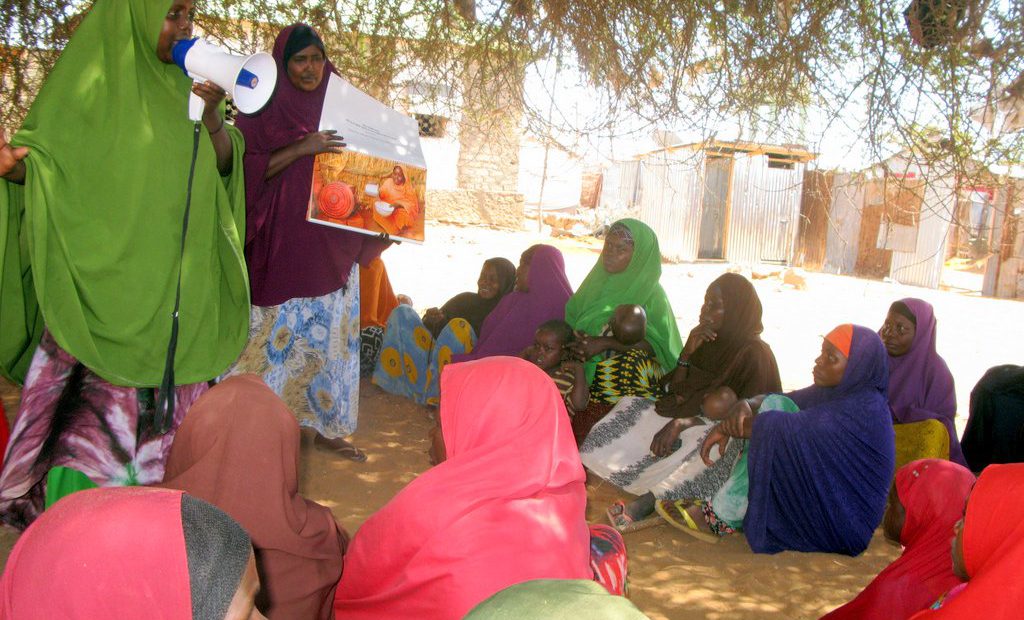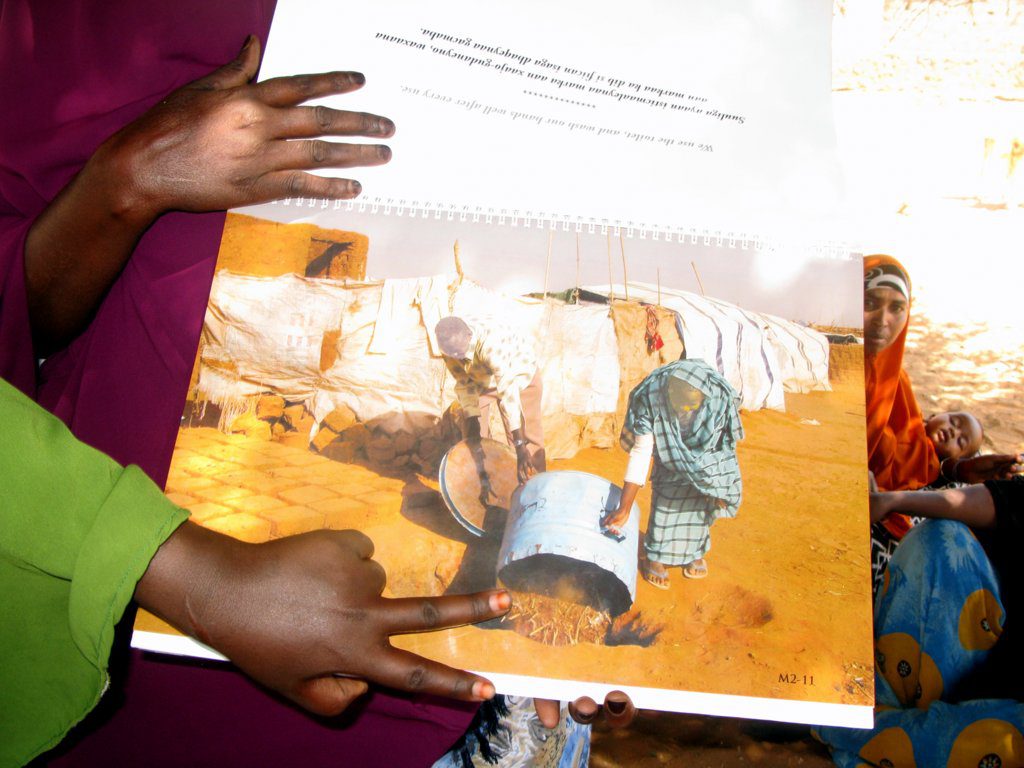In Somalia, hundreds of cholera deaths have been reported this year. These cases can be attributed at least in part to the lack of water and sewage infrastructure following two decades of civil war. In the Dalhiis displacement camp in Kismayo for instance, heavy rains have resulted in a number of outbreaks, including diarrhoea, cholera and typhoid.
Raqiya Abdi*, a mother of five, lives in the Dalhiis camp. The exterior of her tiny hut is a patchwork of torn sacks and used newspaper. An open drain runs past her simple home and a mound of garbage lies in front. When the heavy rains started, she worried that her home would be destroyed, but instead it brought an even worse challenge: contaminated water infected her two sons with cholera.
Raqiya’s husband was working in Jowhar, over 450 km from Kismayo, so was unable to help. Luckily, a truck driver offered her transport to Kismayo General Hospital, where her sons received treatment.
Inspired for change
The recovery of her two sons and the repeated outbreaks of this disease in her community inspired Raqiya to educate and mobilise other residents in the camp to raise awareness about the dangers of cholera. She received training from the Somali Red Crescent Society (SRCS), and now she volunteers as a peer educator each week to help inform others in the camp on the importance of maintaining a hygienic environment.
“If I had known the importance of washing hands properly and boiling water before using it, I could have told a different story today; it was a lack of understanding that caused this,” she explains.
“You have to clean your environment. You have to clean your latrines with enough water, then ensure you wash your hands. This way we will have a healthy life and we might not be infected with cholera,” Raqiya informs the women attending the training session.
Intervention
The International Committee of the Red Cross (ICRC) and the Somali Red Crescent Society (SRCS) have trained 65 people living in Kismayo with the aim of raising awareness about the dangers of cholera and steps that should be followed to prevent further spread of this disease.
Nick Rowe, who is supporting hygiene programmes for the ICRC in Somalia, says it is encouraging to find communities taking the lead in raising awareness about the dangers of cholera.
“Cholera is endemic in Somalia, and it can be very difficult for people to get treatment for cholera and other waterborne diseases,” he explains. “By helping communities understand how to prevent cholera infection, the number of people infected can be greatly reduced. However, to eradicate the disease people need access to safe water and proper sanitation facilities. Without these, outbreaks will continue to strike and take lives.”
Symptoms of cholera can begin as soon as a few hours or as long as five days after infection. Often, symptoms are mild, but about one in 20 people infected have severe watery diarrhoea accompanied by vomiting, which can quickly lead to dangerous levels of dehydration. Although many infected people may have minimal or no symptoms, they can still spread the disease, especially where sanitation facilities are insufficient.
The ICRC supports the SRCS with materials and training on hygiene, and today Raqiya is using the lessons she acquired to educate others, to help prevent further cholera outbreaks.
Simple hygiene tips were also sent via text message (SMS) to 29,591 residents this year to help prevent further outbreak of waterborne diseases.



